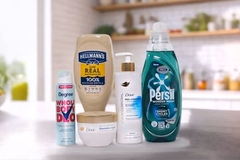
The skin microbiome is the body’s natural defense against external pathogens and pollution that could cause skin inflammation, like acne. New research published in the journal Cosmetics focuses on finding effective probiotic strains that can prevent pathogens from disrupting the skin, identifying ten that show promising results as skin care ingredients.
Skin care products that protect and promote a healthy skin barrier are an increasing focus in the beauty industry. This has led researchers and skin care innovators to study which probiotic microorganisms and skin actives can promote a healthy skin microbiome, the key to a strong barrier.

Researchers from the East China University of Science and Technology found ten strains that were effective in blocking the growth of skin pathogens in lab tests, indicating these probiotics could be barrier-boosting ingredients for skin care formulations. In particular, strains of Bifidobacterium lactis (B. lactis), a probiotic commonly ingested to help gastrointestinal issues in adults, showed high efficacy against the pathogens for multiple days.
Barrier-boosting results
The scientists evaluated 18 commercial probiotic strains and their impact on two common skin pathogens: Malassezia furfur (M. furfur) and Cutibacterium acnes (C. acnes). M. furfur is a type of fungus that causes skin infections and can lead to dandruff and acne, and C. acnes is one of the bacteria that cause acne.
The research focused on probiotic strains and their metabolites, also known as the peptides and organic acids from the microbes, to identify the antimicrobial potential of these skin actives.
Three strains of B. lactis and three strains of Lactobacillus rhamnosus (L. rhamnosus) showed the best results in preventing the skin pathogens from increasing in the lab cultures. According to the study, the inhibition rate of these six probiotics exceeded 90% within two days.Bifidobacterium lactis
Overall, one particular strain of B. lactis saw the highest efficacy against both skin pathogens over an extended period. The HN019 strain had a 90% inhibition rate after 72 hours.
“The personal care industry is increasingly utilizing probiotics and their metabolites as bioactive ingredients to enhance skin health via topical application. Lactobacillus is the most commonly used genus of probiotics,” say the researchers.
“In this study, B. lactis strains demonstrated greater effectiveness in inhibiting the growth of M. furfur and C. acnes compared to L. rhamnosus, indicating the potential of being used as probiotics for skin care.”
The promising results indicate several probiotic strains and metabolites could be beneficial skin care ingredients that boost the skin barrier.
Microbiome-boosting ingredients
Companies taking the lead in focusing on skin microbiome health include Phyla Skincare, which focuses on advancements in bacteriophage technology to treat eczema. Personal Care Insights interviewed Phyla founder Dr. Yug Varma about the product line targeting Staphylococcus aureus, the bacteria responsible for eczema.
Hedy Scheck, COO at MyMicrobiome, told us in an interview that the popularity of microbiome-promoting products is the balance of efficacy with gentleness.
“Products that focus on preserving and strengthening the skin barrier are rising in popularity. These products avoid harsh ingredients like sulfates and alcohols, instead opting for gentle formulations with hydrating ingredients like ceramides and fatty acids to maintain microbiome health,” said Scheck.
MyMicrobiome is developing an AI-based tool to analyze thousands of ingredients for “microbiome friendliness.” The tool aims to speed up identifying ingredients for skin care formulations.













